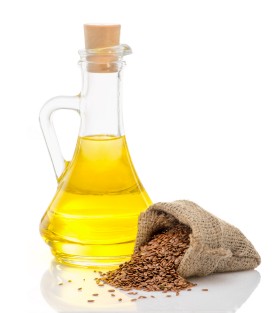Fat is often mislabeled and treated as the ugly stepchild of the macronutrient family. For years people have had the misconception that foods with a higher fat content are inherently unhealthy.
However, in recent times we have come to the conclusion that dietary fats do not necessarily lead to high cholesterol and heart disease if consumed in strict moderation. Instead, a prolonged calorie surplus is a more deadly concern, leading to weight gain over a long period of time.
Related: 25 Unconventional Fat Shredding TipsForget about what you may have heard or were told to believe growing up. Fatty foods do not necessarily make you fat.
Omega-3 fatty acids found in food are different than subcutaneous fat that may be found around your waistline.
Although there are some forms of fat that can be harmful in high quantities, such as saturated fat, we must still have fat as a regular part of our diet to help regulate hormones and provide satiety. That's the reason why some people may feel fuller on higher fat diets even if their caloric level is kept constant.
don't get me wrong, processed foods and beverages that are high in fat are considered unhealthy and should be consumed in moderation. However, there are several naturally fatty foods that should belong in our diets. Foods contain different forms of fat, mainly omega-3 or omega-6, depending upon the food.

Omega-3 fatty acids have several health benefits including the following:
- Natural anti-inflammatories
- Lower levels of depression
- Visual and neurological function
- Reduced symptoms from asthma, ADHD, and even Alzheimer's
- Improved heart health
There are mainly three types of omega-3 fatty acids including EPA and DHA. Fish contain a higher concentration of EPA and DHA omega-3's while plant based sources contain a higher concentration of ALA omega-3's.
Fish oil supplements are a great way to receive the benefits of these fatty acids if you are unable to consume them as a regular part of your diet.
Foods Rich in Omega 3 Fatty Acids
Fish: Most types of commonly consumed fish contain omega-3 fatty acids and provide quite possibly the best source of natural omega-3 fatty acids. Look for fish such as halibut, herring, mackerel, oysters, salmon, sardines, trout, and tuna in your neighborhood grocery store.
Eggs: Eggs contain a high amount of omega-3's making them a staple in every person's diet. Be sure to eat that yolk because it's a nutrient-rich form of fat for your diet.
Milk: Most of the milk found in grocery store chains will be fortified with omega-3's.
Juice: Check the cartons of those containers of orange juice because there is a strong likelihood omega-3's have been added.
Yogurt: Much the same as milk, yogurt may have omega-3's added as well.
Some vegetables containing omega-3 fatty acids include Brussels sprouts, kale, mint, parsley, and spinach. These vegetables also contain a wealth of other micronutrients.
Omega-3 fatty acids help ensure that your heart stays healthy and your brain stays functioning optimally throughout your life.
Other good sources of fat:
Avocados: Often times called nature's butter, avocados are known for their positive heart effects and help in prevention of osteoarthritis.
Seeds: Sunflower seeds and sesame seeds are good sources of fat that can also help lower cholesterol if consumed as part of your regular diet.
Olive oil: If you need to use oil while cooking or simply need a fast salad dressing olive oil is quite possibly the best choice around.
Beans: Beans are a great source of omega-3's in addition to the fiber rich benefits they provide.
The average person should consume 65+ grams of fat daily to maintain optimal health. Forget about the stigma that has been associated with fatty foods for decades and be sure to add plenty of fats to your diet. Consuming fatty foods that are high in omega-3's will provide you numerous health benefits and since they assist in hormone regulation they will help build muscle as a secondary byproduct.
Be sure to follow me on Instagram @ryanrodal and subscribe to my YouTube channel MuscleMinds for more nutritional advice and dietary information.

 Omega-3 fatty acids have several health benefits including the following:
Omega-3 fatty acids have several health benefits including the following: